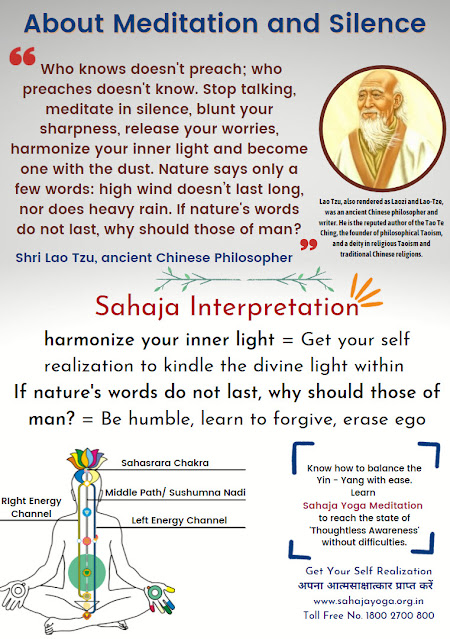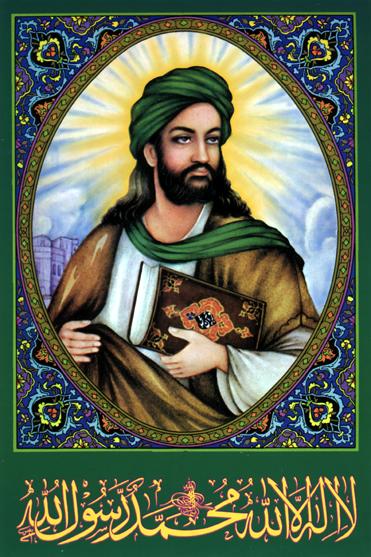Shri Laozi - aka. Lao Tsu - meaning The Venerable Master
Shri Laozi - aka. Lao Tsu (Lao Tzu) - meaning The Venerable Master
Laozi
(commonly called Lao Tsu) is an honorific title that means ‘Venerable Master’.
There are many legends about Lao Tsu but no actual evidence of his life's deeds
exists. According to popular traditional
biographies he worked as the Keeper of the Archives for the royal court of
Zhou. This role would allow him broad access to the works of the Yellow Emperor
and other classics of the time. The stories state that Laozi never opened a
formal school, but nonetheless he attracted a large number of students and
loyal disciples. There are numerous variations of a story depicting Confucius
consulting Laozi about rituals.
Traditional
accounts state that Laozi grew weary of the moral decay of city life and noted
the kingdom's decline. According to these legends, he ventured west to live as
a hermit in the unsettled frontier at the age of 160. At the Western Gate of
the city, or kingdom, he was recognized by a guard. The sentry asked the old
master to produce a record of his wisdom. This is the legendary origin of the Daodejing
or Tao Te Ching (the great book of the way and the virtue).
As with
most other ancient Chinese philosophers, Laozi often explains his ideas by way
of paradox, analogy, appropriation of ancient sayings, repetition, symmetry,
rhyme, and rhythm.
The main topic of the book is the Tao, the Way to find complete harmony. It starts with the famous lines:
“The Tao that can be told is not the eternal Tao”.
The Tao is the Absolute, the union of
the opposites, the union of being and not being, of female and male principle,
of light and shadow, of strength and weakness. These opposites are represented
by the Yin and the Yang: Yin is the feminine, intuitive, sensitive side, while
the Yang is the masculine, rational side. When they meet, they can harmoniously
combine to form the Tao.
Laozi, differently from Confucius who decided to be an active reformer of the society, claimed that by retiring from the world to immerse yourself in the Tao, spontaneously Virtue, Armony and Order come.
The two Masters seem to move in
opposite directions, but in reality they are like two sides of the same coin
(the Ying and the Yang), both of them guided by a common intuition: how to find
inner balance and values.
c Teachings a
About the Great Mother
“In the beginning was the Tao. All things
issue from it; all things return to it. The Tao is called the Great Mother:
empty yet inexhaustible, it gives birth to
infinite worlds. It is always present within you. You can use it any way
you want.”
“The origin
of the world is its mother; understand the mother, and you understand the
child; embrace the child, and you embrace the mother, who will not perish when
you die.”
About Meditation and Silence
"Stop thinking and end your problems. What
difference between yes and no?
What difference between success and failure? Must you value what others value,
avoid what others avoid? How ridiculous!”
“Who
knows doesn't preach; who preaches doesn't know. Stop talking, meditate in
silence, blunt your sharpness, release your worries, harmonize your inner light
and become one with the dust. Nature says only a few words: high wind doesn’t last long, nor does
heavy rain. If nature's words do not last, why should those of man?”
About Inaction and
Desires
“Not exalting the gifted prevents
competition. Not collecting treasures prevents stealing. Not showing desirable
things prevents confusion of hearts. In this way the sage governs people:
emptying their minds, filling their bellies, weakening their ambitions and
strengthening their bones; so that the people may be innocent in knowledge and
desires and the cunning people shall not presume to interfere. Practice not-doing and everything will fall into
place.”
“Nature
does not possess desire; without desire, the heart becomes quiet; in this
manner the whole world is made tranquil.”
About Innocence
“Who is filled with harmony is like a newborn. Snakes and wasps won't
bite him; hawks and tigers will not claw him. His bones are soft yet his grasp
is sure, for his flesh is supple; his mind is innocent yet his body is virile,
for his vigour is plentiful; his song is long-lasting yet his voice is sweet,
for his grace is perfect.”
About Compassion
and Love
“Compassion is the finest weapon and best defence. If
you would establish harmony, compassion must surround you like a fortress.”
“Taste the
flavorless, magnify the small, multiply the few, return love for hate.”








Comments
Post a Comment